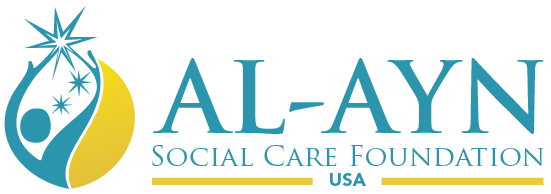 Donate
Donate
 Donate
Donate
Surplus
Deductions
Total amount subject to Khums $0
Khums Due $0
Sahm al Imam to be paid $0
Sahm al Sada to be paid $0
Ramadan, the holiest month in the Islamic calendar, is a time of spiritual reflection, self-discipline, and strengthening our connection with God. Central to this sacred month is the act of fasting, observed by millions of Muslims around the globe. In this blog, we delve into the overall benefits of fasting in Ramadan, including spiritual benefits and health advantages.
So why do people fast during Ramadan? Fasting during Ramadan is not merely an act of abstaining from food and drink; it is a deeply spiritual practice that holds profound significance in Islam. Through fasting, individuals are reminded of the blessings they have been bestowed with and are encouraged to show gratitude for them. Additionally, fasting serves as a way to empathize with those who are less fortunate, promoting compassion and solidarity with those in need.
Many question the purpose of Ramadan and fasting, and the reasoning is quite clear in Islam. Ramadan fasting is more than just refraining from consuming food and drink; rather, it is a transformative journey towards attaining Taqwa (God-consciousness). As stated in the Holy Quran, “O you who have believed, decreed upon you is fasting as it was decreed upon those before you that you may become righteous” (Quran 2:183). This verse emphasizes that fasting is a means of spiritual purification and moral elevation. By refraining from worldly desires, Muslims aim to strengthen their relationship with Allah (SWT)and increase their awareness of His presence in their lives.
Fasting instils a sense of self-discipline and control over one’s desires, which are essential virtues in Islam. By refraining from food, drink, and other physical comforts during daylight hours, Muslims learn to harness their inner strength and resist temptation. This practice of self-discipline extends beyond abstaining from food; it encompasses refraining from negative behaviors such as gossip, anger, and dishonesty, in addition to encouraging self-control too. Through fasting, individuals cultivate a heightened awareness of their actions and strive to align them with the teachings of Islam.
Moreover, fasting creates a profound sense of gratitude for the blessings bestowed upon us by Allah (SWT). As we experience hunger and thirst, we become acutely aware of the privileges we often take for granted, such as access to food, clean water, and shelter. The act of fasting reminds us of the struggles and challenges of the less fortunate and encourages us to share our blessings with those in need. In the words of Imam Ali (peace be upon him), “Blessed is he whose own faults preoccupy him from noticing the faults of others and whose own hunger preoccupies him from envying the plenty of others.”
In addition to its spiritual rewards, fasting in Ramadan offers numerous health benefits for the body and mind. By giving the digestive system a break from constant processing, fasting allows the body to undergo detoxification and renewal, leading to enhanced energy levels. Furthermore, fasting has been associated with cognitive benefits, including improved focus, mental clarity, and mood regulation. As individuals abstain from eating and drinking, they experience a sense of heightened awareness and mindfulness, which can facilitate introspection and self-reflection.
Additionally, Ramadan fasting has been linked to potential longevity benefits, with research suggesting that periodic fasting may promote cellular repair mechanisms and delay aging processes. Also, the practice of fasting encourages a shift in dietary habits, often leading to increased consumption of nutrient-rich foods such as fruits, vegetables, and whole grains during non-fasting hours. This dietary adjustment can contribute to overall better nutritional intake and support long-term health outcomes.
Furthermore, the communal aspect of Ramadan, where families and communities come together to break their fast, enhances social bonds and emotional well-being, promoting a sense of belonging and solidarity among everyone. Overall, the multifaceted benefits of fasting in Ramadan extend beyond the spiritual realm, encompassing aspects of physical health, mental well-being, and social solidarity.
Fasting in Ramadan is a transformative practice that offers a wealth of spiritual, physical, and mental benefits. Through self-discipline, gratitude, and spiritual reflection, Muslims embark on a journey of self-discovery and purification during this blessed month. As we strive to fulfil our religious obligations and draw closer to Allah (SWT), let us embrace the virtues of fasting and reap the abundant rewards it offers. May Ramadan 2024 be a time of renewal, healing, and spiritual growth for everyone.